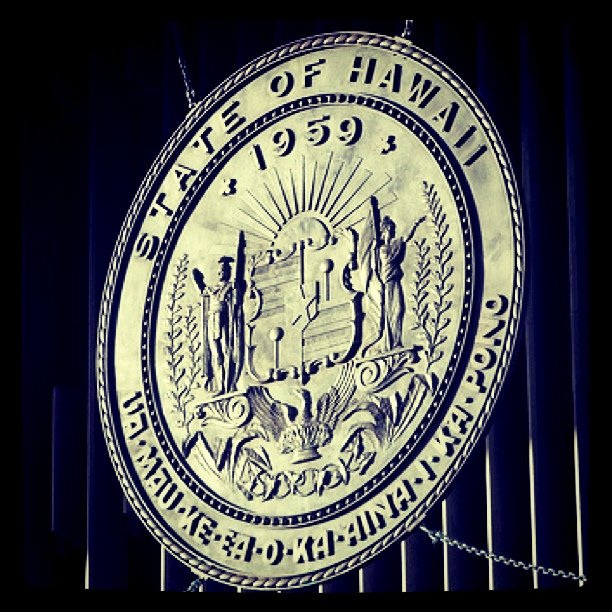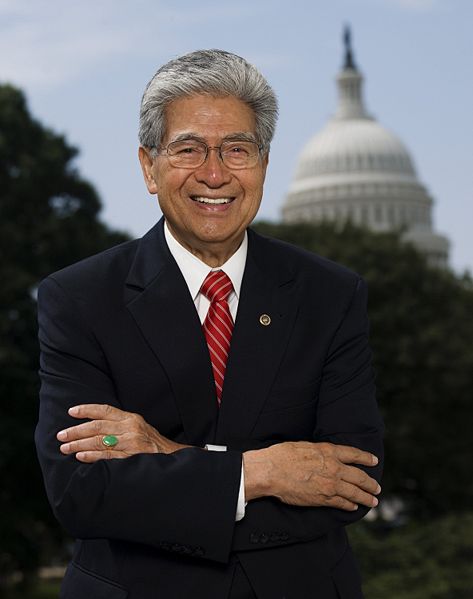As we’ve mentioned here more times than I can count, it’s important that we stay apprised of developments and impact of Native American law, as the Akaka Bill seeks to bring those precedents to Hawaii. Â With that said, here are some of the more significant decisions of late. (Note that two of the cases have to do with child custody and parental rights–further underlining the need for a full study of the possible impact of the Indian Child Welfare Act on post-Akaka Hawaii.)
Southern Ute Indian Tribe v. Sebelius
Court: U.S. 10th Circuit Court of Appeals
| Docket:Â 09-2281 |
Opinion Date:Â September 19, 2011 |
Judge:Â Seymour
Areas of Law:Â Contracts, Government & Administrative Law, Native American Law
This was the second appeal in litigation arising from the Secretary of Health and Human Services’ (HHS) decision not to enter into a self-determination contract with the Southern Ute Indian Tribe (Tribe). In an initial order, the district court ruled that HHS’s decision was unlawful, granted summary judgment to the Tribe, and directed the parties to prepare a proposed order for injunctive relief. After the parties were unable to agree on the proposed order, the district court issued an interlocutory order in which it endorsed HHS’s approach to the contract’s start date and contract support costs. The Tribe appealed, and the Tenth Circuit dismissed the appeal for lack of jurisdiction. On remand, the district court issued a final order, directing the parties to enter a self-determination contract including HHS’s proposed language regarding the contract start date and contract support costs and denying the Tribe’s request for damages. Both parties appealed. Upon review, the Tenth Circuit affirmed the district court’s determination that HHS was required to contract with the Tribe and regarding the contract start date, but reversed the court’s decision regarding contract support costs.
Samish Indian Nation v. United States
Court: U.S. Federal Circuit Court of Appeals
| Docket:Â 10-5067 |
Opinion Date:Â September 20, 2011 |
Judge:Â Gajarsa
Areas of Law:Â Government & Administrative Law, Native American Law
The Court of Federal Claims dismissed, for lack of jurisdiction, the most recent claims brought by the Samish Indian Nation in its continuing quest for federal recognition and benefits. The claims court reasoned that some of the allegations were not premised upon any statute that was money-mandating, and that allegations reliant on money-mandating statutes were limited by other statutes, so that they fell outside the scope of the Tucker Act (28 U.S.C. 1491(a)) and the Indian Tucker Act (28 U.S.C. 1505). The Federal Circuit affirmed with respect to some of the allegations because the Tribal Priority Allocation system (25 CFR 46.2) is not money-mandating. The court reversed dismissal of claims under the Revenue Sharing Act, reasoning that the court’s ability to provide a monetary remedy under that law is not limited by operation of the Anti-Deficiency Act, 31 U.S.C. 1341.
Yancey v. Thomas
Court: U.S. 10th Circuit Court of Appeals
| Docket:Â 10-6239 |
Opinion Date:Â September 20, 2011 |
Judge:Â Hartz
Areas of Law:Â Constitutional Law, Family Law, Native American Law
Petitioner Christopher Yancey filed an action in district court contending that Oklahoma state-court rulings terminating his parental rights over his Indian child were invalid under the Indian Child Welfare Act (ICWA). The district court dismissed his action, determining that either federal abstention was mandated, or the action was barred by the Full Faith and Credit Clause of the United States Constitution. Tiffany Leatherman and Petitioner are the natural parents of Baby Boy L. Petitioner was a member of the Muscogee (Creek) Indian Nation of Oklahoma, but Leatherman was not a member of any Native American tribe. Petitioner and Leatherman were teenagers when the child was conceived, and they never married. Before the child was born, Leatherman decided to place him for adoption, and she located Timothy and Tammy Thomas who were interested in adopting him. In December 2002, Leatherman brought an action in Oklahoma state court to terminate Petitioner’s parental rights and to determine the child’s eligibility for adoption without Petitioner’s consent. Leatherman appeared in court, relinquished her parental rights, and consented to the adoption. Petitioner appeared in the proceedings and objected to the adoption. On May 18, 2010, the Oklahoma trial court entered an order terminating Petitioner’s parental rights. The court found that the ICWA had been complied with and that the Thomases had proved beyond a reasonable doubt that Petitioner’s custody of Baby Boy L. would likely result in serious emotional or physical damage to the child. There was no indication in the record that Petitioner appealed that order. On the day after the Oklahoma trial court entered its order, Petitioner filed this action against the Thomases. Upon review, the Tenth Circuit found that the district court did not err in dismissing Yancey’s federal-court action because it was barred by res judicata. Accordingly, the Court affirmed the district court’s decision terminating Appellant’s parental rights.
In re Adoption of G.D.J.
Court: Oklahoma Supreme Court
| Docket:Â 108889 |
Opinion Date:Â September 20, 2011 |
Judge:Â Combs
Areas of Law:Â Family Law, Native American Law
Petitioners-Appellees, Teryl Pearson and Robert Pearson (Pearsons) petitioned to adopt Teryl Pearson’s (Pearson) grandson, G.D.J. The natural mother, Respondent-Appellant Tessia Bre Stubbs (Stubbs) contested the adoption. The trial court entered two orders on August 11, 2010, in favor of the Pearsons on their Application to Adjudicate Minor Eligible for Adoption Without Consent of the Natural Mother and in its Order Adjudicating Minor Eligible for Adoption Without Consent of the Natural Mother. Stubbs raised multiple issues in her attempt to block the adoption. Among them, she argued that the trial court erred in finding that she failed to contribute to the support of G.D.J., and failed to maintain a meaningful relationship with G.D.J. Upon careful consideration of the trial court record, the Supreme Court found the evidence presented was sufficient to support the trial court’s decision to allow the adoption to proceed.








